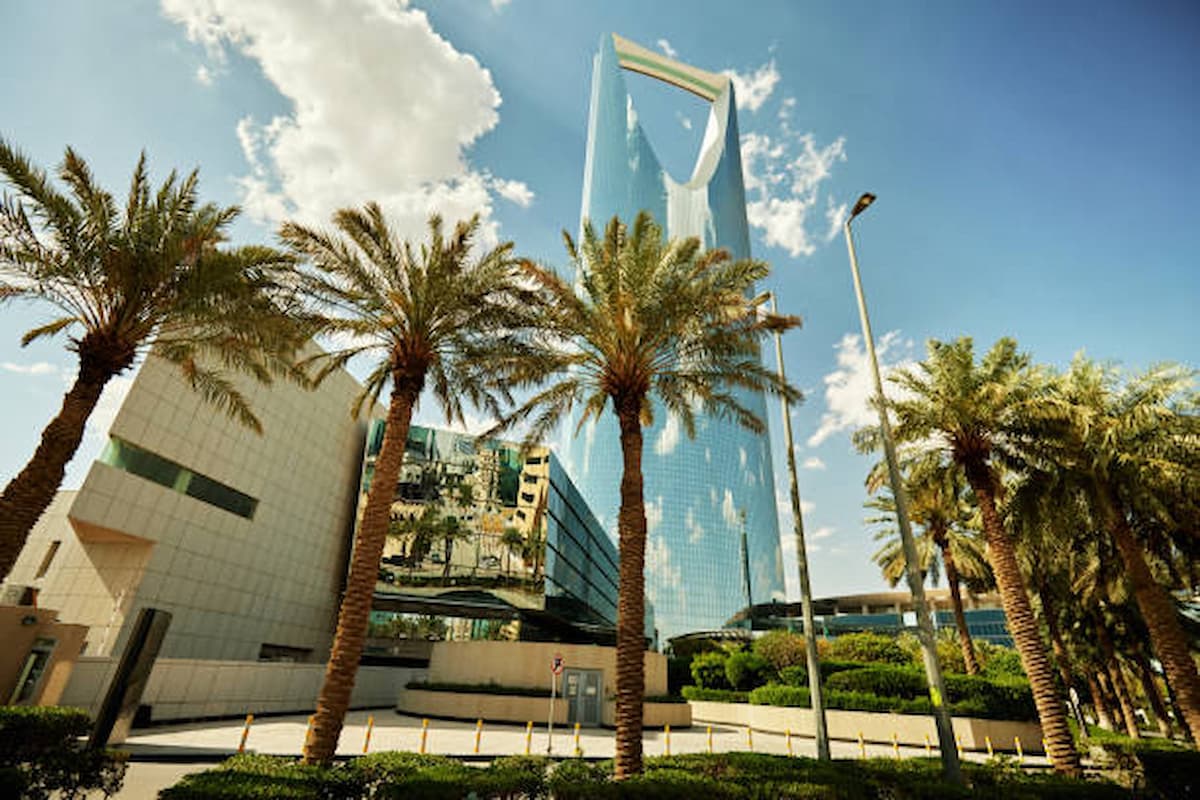A business can conduct operations in Saudi Arabia through a branch license without the need to establish a separate legal entity. The branch is entirely responsible for its operations within the Kingdom and replicates the parent company's operations.
In Saudi Arabia, a branch is defined legally
In Saudi Arabia, a branch operates as an extension of its parent company under the same legal name, meaning the parent company assumes full responsibility for the branch’s activities and debts within the Kingdom.
Key Distinctions Between Branches and Subsidiaries
Businesses frequently have to decide between opening a branch or a subsidiary when thinking about expanding into Saudi Arabia. It is crucial to comprehend the differences between these two structures:
- Legal Status: While a subsidiary is a distinct legal entity incorporated under Saudi law, a branch functions under the parent company's legal identity.
- Liability: Upon establishing a branch, the parent company holds complete responsibility for any debts incurred by the branch. On the other hand, a subsidiary's liabilities are typically limited to the subsidiary.
- Operational Scope: While subsidiaries may carry out additional or different operations with regulatory approval, branches usually replicate the parent company's business operations.

Qualifications for Establishing a Branch in Saudi Arabia
Companies from both domestic and foreign countries are permitted to open branches in Saudi Arabia as long as they fulfill certain requirements:
- Foreign Businesses: Need to apply for a license from Saudi Arabia's Ministry of Investment (MISA). The parent company's financial stability and track record are frequently prerequisites for eligibility.
- Local Businesses: By registering with the Ministry of Commerce, Saudi-based businesses are permitted to open branches inside the Kingdom. This procedure entails following local laws and submitting the required paperwork.
Role of MISA and the Ministry of Commerce
- Ministry of Investment (MISA): is the main regulatory agency for foreign investors looking to set up shop in Saudi Arabia. MISA reviews applications, grants licenses, and makes sure that investment laws are followed.
- Ministry of Commerce: is in charge of business registration, including branch registration. This entails confirming the business's legal standing, making sure Saudi commercial laws are followed.
Ready to expand your company’s presence into Saudi Arabia? Contact Motaded today and let their experts guide your branch registration with ease and precision.
Read also: Branch License in Saudi Arabia | Complete 2025 Guide.
Branches' Allowed Business Activities
As long as they adhere to Saudi Arabia's Vision 2030 and the rules set forth by the Ministry of Investment of Saudi Arabia (MISA), foreign branches are permitted to operate in a variety of industries. The following sectors are permitted:
- Technology and IT Services: Software development, cybersecurity, and IT consulting are examples of technology and IT services.
- Healthcare and Pharmaceuticals: distribution of pharmaceuticals, hospital administration, and medical equipment supply.
- Education and Training: Establishing professional training centers and educational institutions.
- Tourism and hospitality: include event planning, travel agencies, and hotel management.
- Logistics and Supply Chain: Transportation, warehousing, and freight forwarding.
But some industries are prohibited or need special permissions:
- Oil and Gas (Upstream Activities): Upstream activities related to oil and gas are typically off-limits to foreign investment.
- Defense and Military Equipment: Foreign entities are not permitted to possess military or defense equipment.
- Media and Publishing: Special permission from the appropriate authorities is needed for media and publishing.
- Real Estate in Mecca and Medina: Foreign ownership of real estate is forbidden in Mecca and Medina.
To ascertain whether your business activity qualifies, it is imperative that you speak with MISA or a legal advisor.
Read also: Set Up Your Foreign Branch in Saudi Arabia Today: 2025 Guide.

Corporate Records of the Parent Company
- Certificate of Incorporation: The company's legal existence is attested by the certificate of incorporation.
- Memorandum and Articles of Association: The company's structure and operations are outlined in the memorandum and articles of association.
- Commercial Registration Certificate: A certificate of commercial registration attests to the business's domestic registration.
- Audited Financial Statements: Financial stability is demonstrated by audited financial statements, usually for the most recent fiscal year.
Authorization Letters and Resolutions
- Board Resolution: Authorizing the branch's opening in Saudi Arabia.
- Power of Attorney: Giving someone permission to act in Saudi Arabia on behalf of the parent company.
- Appointment Letter: Including their identification documents, the appointment letter names the branch manager in Saudi Arabia.
Ensuring the accuracy and completeness of these documents is vital for a smooth licensing process. Engaging with a local consultant or legal advisor can facilitate compliance with Saudi regulations.
Detailed Procedure for Opening a Foreign Branch in Saudi Arabia
1-Obtain a MISA License: The Saudi Ministry of Investment (MISA) requires foreign entities to first obtain a license. This includes:
- Providing verified corporate documentation, such as the financial statements and commercial registration of the parent company.
- Make certain that every document is translated into Arabic and verified by the Saudi Embassy in the nation where the business is based.
- Using the MISA portal to finish the online application.
The MISA license is a requirement for additional registration procedures and is normally valid for a year.
2-Reserve a Trade Name: Choose a unique trade name for the branch that complies with Saudi Arabian naming regulations. You can accomplish this by using the online portal of the Ministry of Commerce.
3-Draft the Articles of Association (AoA): Prepare a document outlining the ownership structure, governance, and operational guidelines of the branch. As part of the registration procedure, this document needs to be notarized and turned in.
4-Register with the Chamber of Commerce: The branch needs to register with the local Chamber of Commerce following the acquisition of the CR. To conduct business in the Kingdom, this registration is necessary.

Capital Requirements and Government Fees
Depending on the size and type of business, opening a branch in Saudi Arabia can come with a range of costs. Typical charges consist of:
- MISA License Fee: Ranging from SAR 2,000 to SAR 10,000.
- Commercial Registration Fee: Approximately SAR 1,200 to SAR 2,000.
- Chamber of Commerce Registration: Between SAR 1,000 and SAR 3,000.
- Municipality License: Costs vary depending on the municipality and business activity.
- Notarization and Translation Services: Estimated between SAR 500 and SAR 2,000.
In Saudi Arabia, opening a branch involves a methodical and detailed procedure with specific legal requirements. The process requires careful planning, from obtaining the necessary licenses to meeting regulatory compliance standards set by the Saudi government. Foreign businesses must also prepare essential documentation, including proof of financial stability and corporate authorization papers. In addition, there are capital requirements that businesses must meet to ensure eligibility for branch establishment.
Registration and Compliance with Taxes
To comply with corporate income tax and Value Added Tax (VAT) regulations in Saudi Arabia, foreign branches must register with the Zakat, Tax, and Customs Authority (ZATCA).
The standard corporate income tax rate applied to foreign branches is 20% of net adjusted profits.
This remittance tax is typically charged at a rate of 5%, further impacting the overall financial planning for foreign businesses operating in the Kingdom.
1-GOSI Registration: Every business operating in Saudi Arabia, including international branches, is required to register with the General Organization for Social Insurance (GOSI).
- Required for all businesses, including foreign branches.
- Ensures employee compliance with social insurance laws.
- Submit signatory documents, employee info, and company details via the GOSI portal.
2-Qiwa Registration: Businesses must also register with the Ministry of Human Resources and Social Development (HRSD) via the Qiwa platform.
Registration on Qiwa facilitates:
- Management of work permits.
- Management of employment contracts.
- Compliance with labor regulations.
Importance of Compliance:
- Completing both GOSI and Qiwa registrations is critical.
- Ensures smooth operations and full compliance with Saudi labor and employment laws.
Taxation: Subsidiaries versus Branches
It is essential to comprehend the tax ramifications of conducting business as a branch as opposed to a subsidiary:
- Branches: The standard corporate income tax rate of 20% is applied to profits. Profits sent to the parent company are also subject to a 5% branch remittance tax.
- Subsidiaries: Function as distinct legal entities and pay their own taxes. Depending on the particulars and relevant tax treaties, this structure might provide some tax benefits.
Maintaining Compliance for Effective Operations
Foreign branches must carefully navigate Saudi Arabia’s labor and tax laws. To ensure compliance, businesses must register with key authorities:
- Zakat, Tax, and Customs Authority (ZATCA)
- General Organization for Social Insurance (GOSI)
- Ministry of Human Resources and Social Development (HRSD)
Understanding the tax implications related to their organizational structure is also crucial.
By fulfilling these requirements, businesses can maintain compliance and focus on expanding their operations within the Kingdom.

Benefits of Establishing a Branch in Saudi Arabia
- Complete Ownership and Control: International businesses can retain full ownership of their Saudi Arabian branch, eliminating the need for a local partner.
This structure allows the parent company to directly oversee and manage operations within the Kingdom, ensuring greater control and alignment with global business strategies. - Simplified Setup Process: In general, opening a branch is easier than opening a subsidiary. The process involves completing registration with the Ministry of Commerce and securing a license through the Ministry of Investment (MISA).
- Direct Market Access: Running a branch gives you direct access to Saudi Arabia's expanding customer base. This presence can build relationships with local partners and clients while increasing brand visibility.
- No Local Sponsor Needed: A branch office does not require a local sponsor, in contrast to other business structures.
Operating a Branch in Saudi Arabia Has Its Limitations
- Unlimited Liability: Since a branch is not a distinct legal entity, the parent company is fully liable for the activities and debts of the branch in Saudi Arabia.
- Restricted Business Activities: Branches are usually only allowed to engage in activities that complement the main business operations of the parent company. It might not be allowed to engage in unrelated or different business activities.
- Taxation Considerations: Branches' profits made in Saudi Arabia are liable to corporate income tax. Profits sent to the parent company are also subject to a branch remittance tax.
- Compliance with Local Regulations: In order to operate a branch, one must follow Saudi Arabia's regulatory framework, which includes labor laws, Saudization policies, and other requirements. Penalties or interruptions to operations may follow noncompliance.
Foreign businesses can enter the Kingdom's market with complete ownership and control by opening a branch in Saudi Arabia. But it's important to take into account the operational constraints, legal requirements, and related liabilities.
Last Words of Advice and Assistance
Establishing a branch in Saudi Arabia can help your company reach new markets, increase brand awareness, and position itself strategically in a rapidly expanding economy.
However, maneuvering through the legal and regulatory framework can be difficult, particularly for businesses that are not well-versed in Saudi Arabia’s business environment.
To avoid delays, legal mistakes, or compliance issues, it is highly recommended to work with experts who understand local laws, government regulations, and the nuances of business registration in the Kingdom.
Professional assistance can save both time and money, helping with everything from document preparation to navigating government portals and securing necessary approvals.
Do you need assistance opening a branch in Saudi Arabia?
Get in touch with Motaded, a reliable partner specializing in full-service business setup solutions.
Their team is highly experienced in handling government transactions, licensing, compliance, and legal documentation.
Whether you are still in the planning phase or ready to proceed with registration, Motaded provides the guidance and solutions you need to start smoothly and confidently.

FAQs about branch license company in Saudi Arabia
How many types of licenses are there in Saudi Arabia?
Commercial, industrial, professional, service and agricultural licenses are available in Saudi Arabia.
Is the Saudi license an international license?
No, Saudi-issued licenses are only valid inside the Kingdom.
How to get a MOH license in Saudi Arabia?
Apply for a Ministry of Health (MOH) license through the Seha online portal with the required documents.
How long does it take to establish a branch in Saudi Arabia?
Depending on documentation and compliance, opening a branch normally takes three to seven weeks.
Can a branch hire foreign employees in Saudi Arabia?
Yes, provided that it conforms with labor and Saudization regulations, a branch may employ foreign workers.